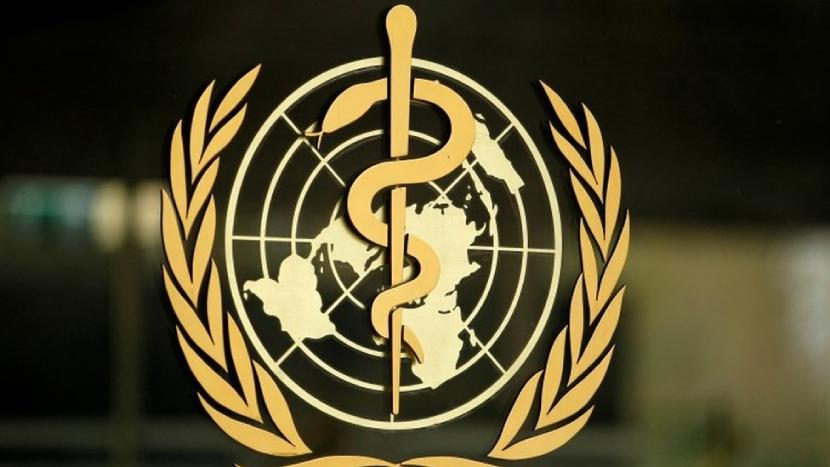Understanding Argentina’s Decision to Exit the World Health Organization
In a surprising move, Argentine President Javier Milei has announced the country’s withdrawal from the World Health Organization (WHO), citing significant disagreements with the U.N. agency. This decision mirrors the actions of former U.S. President Donald Trump, who initiated the process of withdrawing the United States from the WHO during his tenure. Milei’s spokesperson, Manuel Adorni, explained that the decision stems from profound differences in health management, particularly during the COVID-19 pandemic. Adorni criticized the WHO’s guidelines, which he claimed led to the most extensive shutdown in human history. Additionally, he accused the WHO of lacking independence due to political influences from certain countries, though he did not specify which ones. Adorni emphasized that Argentina would not allow an international organization to interfere with its sovereignty, especially in matters of health.
The WHO, as the U.N.’s specialized health agency, plays a crucial role in coordinating global responses to health crises, including outbreaks of new diseases and persistent threats like Ebola, AIDS, and mpox. Argentina’s withdrawal raises questions about the future of global health cooperation and the potential implications for the country’s health management.
Commentary by SuppBase columnist Alice Winters
Argentina’s decision to withdraw from the World Health Organization (WHO) is a bold and controversial move that warrants a closer examination. While the announcement has sparked debate, it is essential to analyze the underlying motivations, potential consequences, and broader implications for global health governance.

The Context of Argentina’s Decision
President Javier Milei’s administration has framed the withdrawal as a stand against perceived overreach and inefficacy by the WHO, particularly during the COVID-19 pandemic. The criticism centers on the WHO’s guidelines, which Milei’s spokesperson, Manuel Adorni, claims led to unprecedented global shutdowns. This sentiment echoes the frustrations of many nations that felt the WHO’s recommendations were overly restrictive or poorly tailored to local contexts.
However, the decision also reflects a broader skepticism toward international organizations and their influence on national sovereignty. Adorni’s remarks about the WHO’s lack of independence due to political pressures from certain countries suggest a distrust of multilateral institutions. While this perspective resonates with some populist and nationalist movements, it raises concerns about the erosion of global cooperation in addressing health crises.
The Role of the WHO in Global Health
The WHO plays a pivotal role in coordinating international responses to health emergencies, from disease outbreaks to chronic health challenges. Its mandate includes setting global health standards, providing technical assistance to member states, and facilitating research and collaboration. The organization’s efforts have been instrumental in combating diseases like smallpox, polio, and, more recently, COVID-19.
Argentina’s withdrawal from the WHO could undermine its ability to participate in global health initiatives and access critical resources. For instance, the WHO provides funding, expertise, and vaccines to low- and middle-income countries during health crises. By stepping away, Argentina may find itself isolated in future emergencies, relying solely on its domestic capabilities and bilateral agreements.
Potential Implications for Argentina
The immediate impact of Argentina’s withdrawal is likely to be limited, as the decision does not sever all ties with the WHO overnight. However, the long-term consequences could be significant. Without the WHO’s support, Argentina may face challenges in accessing global health data, participating in vaccine distribution programs, and collaborating on research initiatives.
Moreover, the decision could strain Argentina’s relationships with other nations and international organizations. The WHO serves as a platform for diplomatic engagement and cooperation, and Argentina’s absence may weaken its influence in global health discussions. This could have ripple effects on trade, tourism, and other areas where health regulations play a role.
Broader Implications for Global Health Governance
Argentina’s withdrawal highlights a growing trend of skepticism toward multilateral institutions. This trend, fueled by populist and nationalist movements, poses a threat to the collective action needed to address global health challenges. The COVID-19 pandemic demonstrated the importance of international cooperation in combating health crises, and the erosion of trust in organizations like the WHO could hinder future efforts.
At the same time, the decision underscores the need for reforms within the WHO. Critics have long argued that the organization is overly bureaucratic, slow to respond, and susceptible to political influences. Addressing these concerns could help restore confidence in the WHO and strengthen its ability to fulfill its mandate.
A Balancing Act: Sovereignty vs. Cooperation
Argentina’s withdrawal raises fundamental questions about the balance between national sovereignty and international cooperation. While nations have the right to make decisions that align with their interests, health crises often transcend borders and require collective action. The challenge lies in finding a model of governance that respects sovereignty while promoting collaboration.
One potential solution is to decentralize decision-making within the WHO, giving member states greater autonomy in implementing guidelines. This approach could address concerns about overreach while maintaining the benefits of global coordination. Additionally, increasing transparency and accountability within the organization could help rebuild trust and ensure that its actions align with the needs of member states.
Conclusion
Argentina’s decision to withdraw from the WHO is a significant development with far-reaching implications. While it reflects legitimate concerns about the organization’s effectiveness and independence, it also risks undermining global health cooperation and isolating Argentina in future crises. The move underscores the need for reforms within the WHO and a renewed commitment to balancing sovereignty with collaboration.
As the world continues to grapple with health challenges, the importance of international cooperation cannot be overstated. Argentina’s withdrawal serves as a reminder of the fragility of global health governance and the urgent need to address its shortcomings. Only through collective action and mutual trust can we hope to build a healthier, more resilient world.



